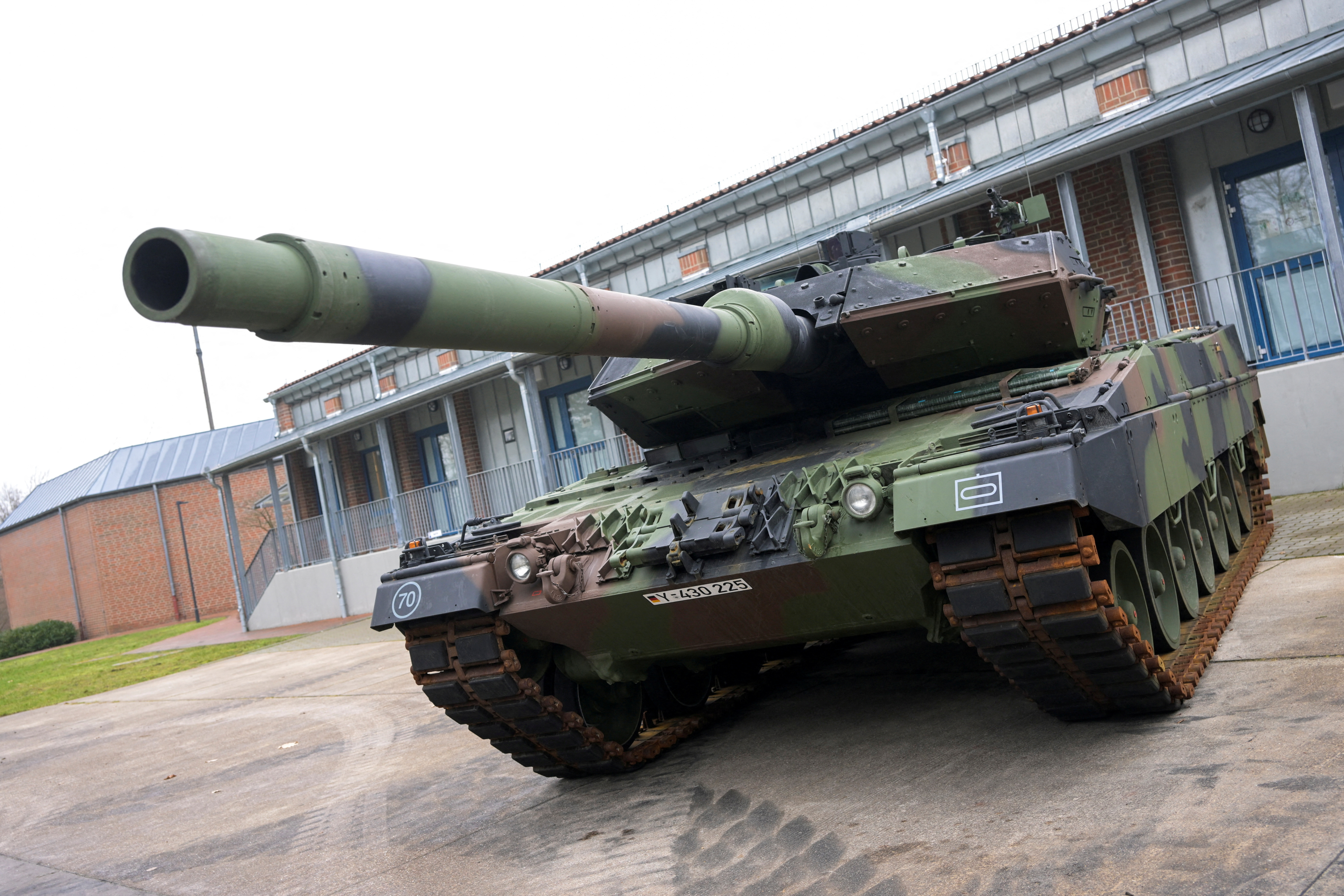[ad_1]

A view of a Leopard 2 tank at the German army Bundeswehr base in Munster, Germany, February 20, 2023. REUTERS/Fabian Bimmer/File Photo Acquire Licensing Rights
BERLIN, Sept 6 (Reuters) – Germany has signed agreements with Italy, Spain and Sweden on the development of a successor to the Leopard 2 tank, German business daily Handelsblatt reported on Wednesday.
If confirmed, the deal would be certain to upset France, which, in 2017, agreed with Berlin to develop a joint Franco-German tank to succeed the German Leopard 2 and the French Leclerc in a project beset by delays and disagreements.
The initiative is to take place under the leadership of Krauss-Maffei Wegmann (KMW) and Rheinmetall (RHMG.DE), the German arms makers building the Leopard 2, Handelsblatt reported, citing unnamed industry and political sources.
The German defence ministry did not immediately respond to a request for comment. A spokesperson for Rheinmetall declined to comment on the report. A spokesperson for KMW could not immediately comment.
The newspaper said the partners in the deal were planning to apply to the European Defence Fund for funding amounting to a three-digit million euro sum, adding the project would also involve Sweden’s Saab (SAABb.ST) and Italy’s Leonardo (LDOF.MI). It did not identify which Spanish company would be involved.
The delays to the proposed Franco-German project have strained ties already tested by differences over energy topics and the question to what extent Europe should become independent from the U.S. in its security policy.
Still, the defence ministers of France and Germany said in July they sought to give fresh impetus to the venture and had tasked their army chiefs to hammer out the rough outlines of the new tank’s capabilities, to have a basic document ready by the end of the year.
Handelsblatt, however, reported the countries had not been able to agree on the specifications of the tank, with France aiming for a rather light vehicle whereas Germany opted for a more heavily armoured tank.
The French military has been traditionally strongly involved in Africa where having a lighter vehicle that can be more easily transported by air makes sense. Germany, in contrast, sees the major threat as coming from Russia.
The defence ministry in Paris and the office of President Emmanuel Macron did not immediately respond to requests for comment.
Handelsblatt said the new tank deal was a setback for the Franco-German cooperation in defence procurement, even though it was possible that both projects might be continued.
It cited French government sources as saying the topic would be raised at Franco-German government consultations scheduled for the start of October.
Writing by Friederike Heine, Sabine Siebold and Michel Rose, Editing by Andrew Cawthorne and Alison Williams
Our Standards: The Thomson Reuters Trust Principles.
[ad_2]
Source link
